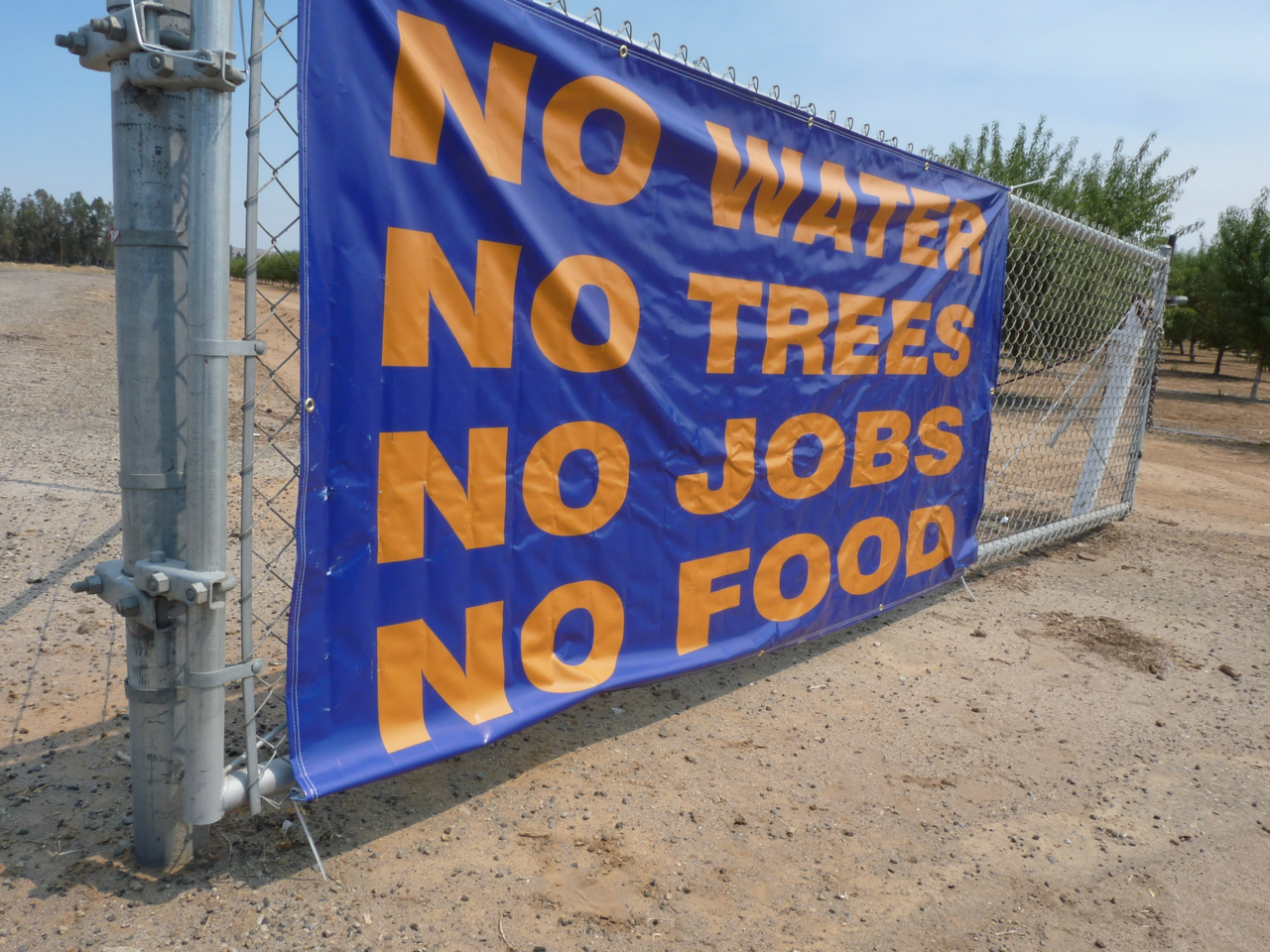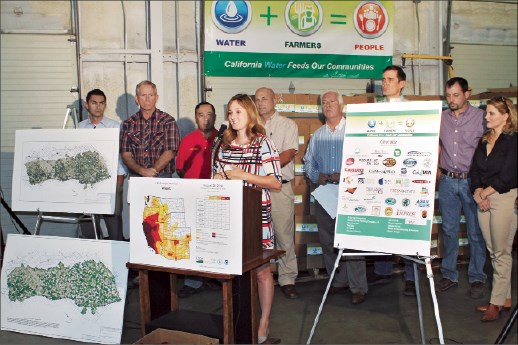Message to Water Board: Water is Everyone’s Business
Volunteer from El Agua es Asunto de Todos (Water is Everyone’s Business) Gives Compelling Testimony at Water Board Workshop
by Laurie Greene, CalAgToday
TODAY, María L. Gutiérrez, a volunteer with El Agua es Asunto de Todos, “Water is Everyone’s Business,” gave the following testimony at California’s State Water Resources Control Board‘s (Water Board) Sacramento information-only Public Workshop regarding the Temporary Urgency Change Petition (TUCP) submitted by the California Department of Water Resources and U.S. Bureau of Reclamation on January 23, 2015. Given the drought crisis, the DWR and USBR filed the TUCP with the SWRCB Division of Water Rights to revise Sacramento-San Joaquin River Delta restrictions devised to meet flow and water quality objectives established in the Water Quality Control Plan for the San Francisco Bay/Sacramento-San Joaquin Delta (Bay-Delta) Estuary. The TUCP requests the Water Board allow more water to be allocated to the Central Valley, for a period of 180 days, via DWR’s State Water Project (SWP) and USBR’s Central Valley Project (CVP) that includes flows from recent storms in the northern part of the state.
Gutiérrez provided the following testimony:
“El Agua es Asunto de Todos” is a campaign with two main goals – to raise awareness about the water shortage in California and the devastating economic impact it is having upon the Latino community, and second, to provide a platform for the Latino community to actively weigh in on the water issues.
California is entering its fourth straight dry year marking this state’s worst drought in 500 years. A drought like this is wrecking havoc on the lives of Latino families and the communities they live in. And when you impact the Latino community, you are looking at a domino effect with epic proportions. Because this affects restaurants, gas stations, truck drivers, gardeners, mom and pop shops, small business, schools, and food projects.
Our situation is even grimmer. We have seen 40% unemployment in Mendota, Huron and Firebaugh.
We are living in America. And, so I have to ask you, how is this happening? In my mind, I expect it to get even worse. We can conserve as much water as we can now, but if we don’t get a reliable water supply, whole communities will be torn apart.
The unconscionable decision by Executive Director Tom Howard to deny additional pumping and water supply to our Central Valley communities is outrageous and immoral. His decision is a slap in the face to Latinos who live south of the Delta.
Let me tell you something about the Latino community. Latinos want to work; they don’t want a handout; and they don’t want to be standing in food lines. People tell us at every place we stop to dialogue, how they are losing their jobs, cars, and homes. Families are seeing their college dreams for their kids disappear. They tell us, all I want to do is work.
We are seeing more women and men standing in lines for food baskets. People are being forced to make tough choices – to put food on the table or buy medication. We are also seeing too many families lacking life’s basic necessities like water for drinking, cooking and showering because their wells have run dry. Another year with zero percent water will bring even more hardship to these families.
I’ve met farmers who have told me that if they didn’t get water, they would have to lay off entire families of workers that have worked for them for generations. Farmers are of all races and nationalities. Most have started as farm workers, they bought the acreage and now they are farmers. They are part of what makes this nation great.
People are very angry. You need to understand the total impact a bad decision will have on many of our communities.
We need water now!
It is a civil right.
It is a human right.
All of our communities request that the State Water Resources Control Board approve in full and allow State and Federal agencies to collectively manage the Central Valley Project and State Water Project on a real-time basis to provide water to our communities that are in dire need.
Our communities cannot afford any lesser operational flexibility during this unprecedented crisis.
As the Water Board meeting was for informational purposes only, no Board action was taken.












